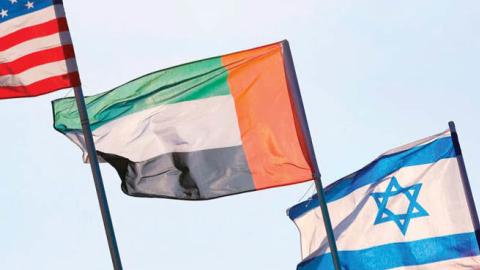Not since May 1948, when both the U.S. and the Soviet Union recognized the state of Israel in the critical weeks of its war for independence, has Israel had a diplomatic month like this. On Aug. 13, the United Arab Emirates and Israel signed an agreement to normalize relations, with the formal ceremony to be held Tuesday in Washington with President Trump. On Sept. 11, Bahrain followed suit. The Palestinian Authority, holding the rotating chair of the Arab League, introduced a resolution condemning the U.A.E. move at a Zoom session of Arab foreign ministers, but in a shocking departure from past practice, the motion failed to pass. On Sept. 13 another Arab nation, Oman, issued a statement of support for Bahrain’s decision to normalize relations.
Meanwhile, defying pressure from the European Union and in exchange for Israeli recognition of Kosovo’s independence, Kosovo became the first Muslim-majority country in the world to agree to place an embassy in Jerusalem in another Trump-brokered deal. (The status of a similar pledge from Serbia isn’t clear.)
With Saudi Arabia allowing flights from Israel to the U.A.E. to pass over its territory and Morocco reported to be close to allowing direct flights to the Jewish state, something of a tipping point seems to have been reached in the Middle East. Resentment of Zionism and sympathy for the Palestinians will no longer be allowed to interfere with what embattled Arab rulers see as a vital relationship.
Read the full article in the Wall Street Journal


















